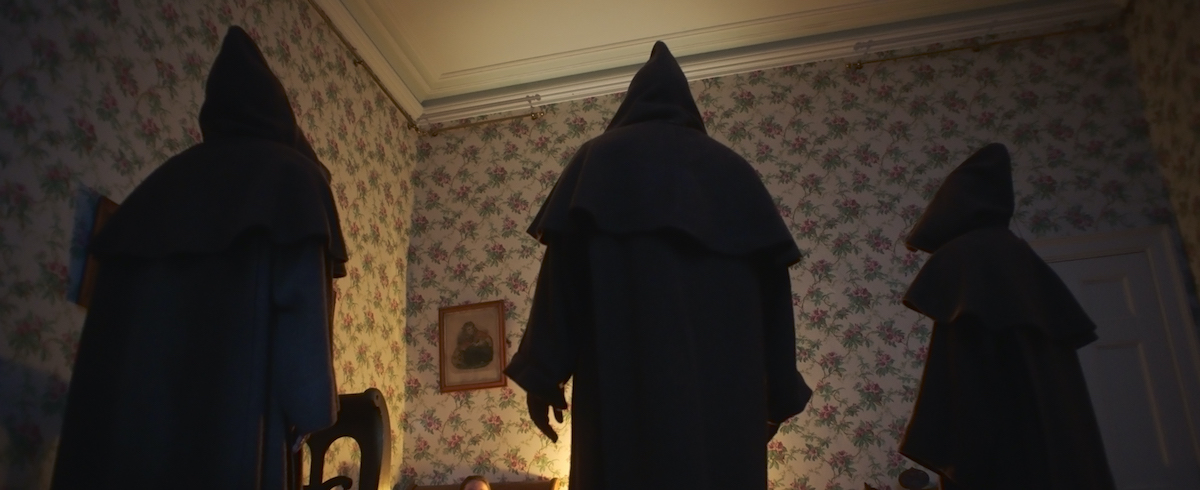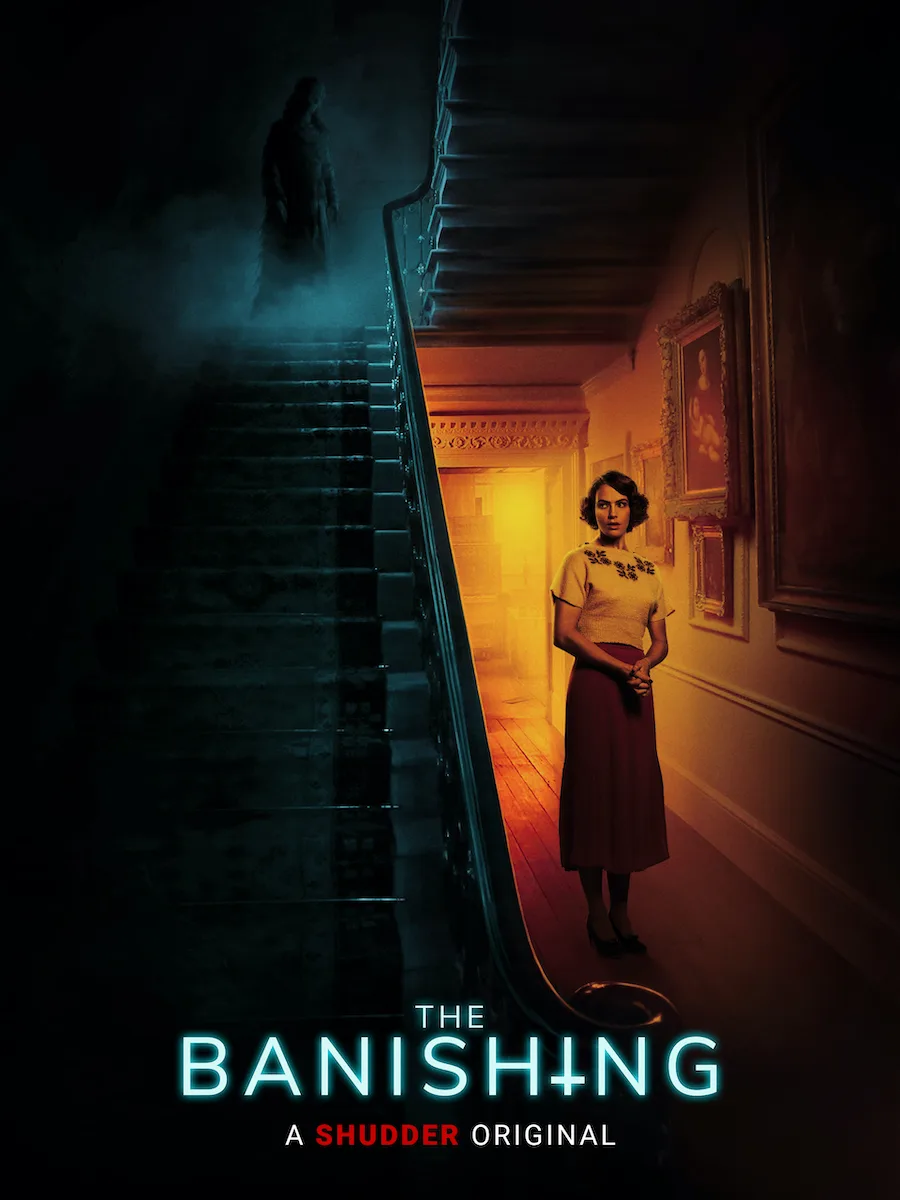Christopher Smith’s “The Banishing,” premiering today on Shudder after a brief fest run, has the stately style and tone of a classical period piece, but it’s also kind of insane. It blends what one would expect from something like “The Haunting of Bly Manor” (and there’s a dose of Mike Flanagan’s “Oculus” along the way too) with elements taken from the giallo kitchen sink, and it all disappears in the British fog. Despite a few strong production values and performances, Smith’s film simply crosses the lane into incoherency and not the surreal David Lynch-esque kind of incoherency that sets a tone, but the this-needed-a-better-edit-or-rewrite kind of incoherency that gets people wondering what else is on Shudder.
Like most movies about haunted houses nowadays, “The Banishing” is allegedly based on a real location, but this one is notoriously the most haunted of the haunted houses in England, Borley Rectory. After a startling prologue that hints at a movie that doesn’t really follow—Smith has a habit of feinting in one direction and then going in another, usually less interesting one—“The Banishing” introduces the new vicar in town, a man named Linus (John Heffernan, doing almost nothing in terms of performance), who has come to Borley with his new wife Marianne (Jessica Brown Findlay) and her daughter Adelaide (Anya McKenna-Bruce). Of course, it’s not long before ‘Addie’ (a name shouted roughly 400 times during the film) has made an imaginary friend and Marianne is hearing odd things in the middle of the night.
The bulk of “The Banishing” consists of Marianne facing the demons that have emerged from the tarnished history of Borley, and she meets a local psychic named Harry Price, who is played by Sean Harris as if he’s in an entirely different and superior film. As he has in the past, Harris reaches for the kind of creepy register that could be called unrealistic, but he understands that this movie needs that kind of jolt of odd energy to get under the viewer’s skin. And thank God because too much of what’s around Harris is just flat and musty. There are too many times when it feels like “The Banishing” needed to go Full Argento and Smith is too cautious a filmmaker to do so. It’s dull when it needed to be terrifyingly confrontational.
A fatal flaw of “The Banishing” is that the central characters stuck in this haunted house aren’t engaging. Say what you will about Flanagan’s weaknesses, he understands that character is key. We have to care about the people being haunted or it feels hollow. The same goes for obvious inspirations on this project like “The Innocents” or “The Others.” Try as she will to give her non-character some gravity, Findlay just isn’t memorable, and Heffernan is even more of a non-character, someone whose background and motives never feel defined. You know a movie is in trouble when the supporting characters outside the haunted house are more engaging than the protagonists stuck in it. You almost start to root for the ghosts.
It doesn’t help that the visual language of “The Banishing” feels like it’s constantly working against the storytelling. This is a tale that dips into alternate dimensions and has mirrors that reflect other realities, but the cinematography often picks the wrong angle—a climactic moment is bafflingly shot in a way that drains tension instead of amplifying it—and the editing plods along instead of building up steam or atmosphere. There’s a fine line between avoiding jump scares and making a haunting feel routine. Oh, just the old Borley house again. This film seems almost clinical outside of Harris’ cuckoo performance (and a bit of welcome scenery chewing from John Lynch), which is nearly a feat given that the script also contains Nazis, ghosts, hooded figures, imaginary friends, creepy dolls, mirror realities, and enough crazy plot details that one would think the sheer abundance of them could build some momentum. One would be wrong.
On Shudder today, April 15th.




















